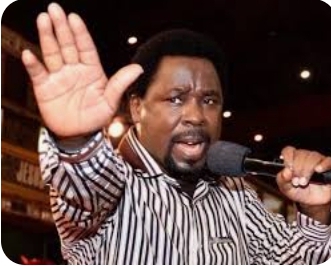By Daniel Karlmax
In the realm of media ethics, the BBC has stood as an emblem of respect, attracting elites and global audiences.
However, a scrutinizing gaze at their recent investigative report on the late TB Joshua unveils certain missing links, casting shadows on the organization’s credibility.
The report, though tackling a figure of national interest, seems to lack the fundamental principles of fairness, objectivity, and balance, crucial in preserving the integrity of investigative journalism.
While not advocating for wrongdoing, it’s imperative to recognize the absence of the key player, Mr TB Joshua, who cannot be summoned to verify the allegations posthumously.
The impact of the report on the public is diminished as the subject is no longer alive to respond, challenging the very essence of media ethics.
Media, regarded as a tool for investigation and justice, should adhere to the adage, “what is worth doing, is worth doing well.”
The BBC’s ethical standing comes under scrutiny as the report seems one-sided without input from the deceased Mr. TB Joshua.
Without his perspective, the findings appear incomplete, lacking the credibility to persuade the public on the alleged wrongdoings of the late “man of God.”
A critical examination of the documentary reveals unbalanced narratives, such as the portrayal of TB Joshua planning to make whites slaves, reminiscent of past enslavement.
The inclusion of accounts suggesting vast investments by the Synagogue Ministry outside the country adds to the perceived bias.
The absence of evidence showing an interview with TB Joshua during his lifetime raises questions about the true intentions behind the documentary.
It becomes apparent that the documentary may not be about seeking truth but rather targeting the ministry’s downfall and jeopardizing its hard-earned investments.
The parallels drawn between the late TB Joshua’s predicament and historical figures like Jesus Christ underscore the universal challenge of facing accusations despite one’s benevolent actions.
Crucially, the unverified nature of the allegations raises ethical concerns, prompting the question: Why create a documentary when the accused is no longer present to defend himself? This apparent oversight contradicts the principles of ethical journalism, leaving a lingering doubt about the motives behind the production.
Some critics argue that this controversy is not just about an individual but a broader assault on the church and the body of Christ.
They perceive it as a deliberate move orchestrated by certain individuals to weaken the faith of believers.
This sentiment aligns with historical narratives that have often portrayed Africa in a negative light, implying that nothing good can emerge from the continent.
As a revered media institution, the BBC should channel its expertise towards addressing pressing national and social issues within the African region.
In doing so, it can contribute meaningfully to discussions surrounding insecurity, election rigging, mismanagement, and bad governance, all of which contribute to abject poverty, unemployment, and hunger—a potential precursor to anarchy if left unattended.











